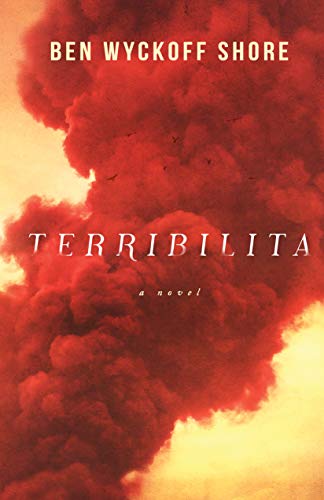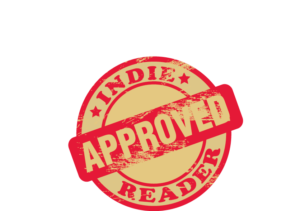Terribilita received a 4+ star review, making it an IndieReader Approved title.
Following find an interview with author Ben Wyckoff Shore.
What is the name of the book and when was it published?
The book is called Terribilita. Pub date is March 26, 2020.
What’s the book’s first line?
“The boy pulled the blind old man through the garden and up the hill to their favorite talking spot.”
The book is about family and although the trials facing the Ferrandos are brutal, it was important for me that the book opens gently, with some tenderness in the first few chapters.
What’s the book about? Give us the “pitch”.
The rebel caprices of Enzo Ferrando have dire consequences. His father, the Risorgimento war hero is gunned down on his veranda. His son Lucca is forced into hiding as a deckhand on a merchant ship. Enzo himself is conscripted into the Italian army and forced to wage war on the African Horn. While Enzo yearns to take vengeance on his father’s killers and reunite the family, Lucca must try to break the cycles of violence.
Terribilita is a historical fiction novel set in the second half of the 19th century. The story combines revenge saga with a coming of age tale while examining the redemptive power of violence. Readers will encounter Bashi-Bazouk mercenaries, blackbirding pirates, Ethiopian army hordes, and historical figures of the era.
What inspired you to write the book? A particular person? An event?
A few years ago I was living in Boston doing part-time work on an ambulance as an EMT. There was a lot of down time at the base between calls so I’d always have reading material. A “When in Rome” philosophy got me reading about the history of the Red Cross and I came upon a fascinating historical figure named Henri Dunant. In the 1850s, a Swiss gentleman named Henri Dunant stumbled upon one of the bloodiest conflicts of his generation called the Battle of Solferino. Dunant wrote a book about his experiences and it basically went viral in Europe, galvanizing the nation-states into forming the Geneva Convention and the International Committee of the Red Cross. After a remarkably rapid ascension to humanitarian fame, Dunant gets into deep financial trouble and goes dark for nearly three decades. His third act is one of redemption where he is discovered in a remote hospital, has a re-entry into society, and is eventually awarded the first ever Nobel Peace Prize. What inspired the book was Dunant’s dark period. As strange as it sounds, I couldn’t stop thinking about these decades of solitude and pain and I needed a character to go interact with Dunant and draw him out. That was the initial spark that got me writing and the book expanded from there.
What’s the main reason someone should really read this book?
The characters. In my mind it’s all about the characters. While I should mention that I read and worked obsessively on the time period and getting the zeitgeist right, I believe the setting and even the plot are tools for sculpting and shaping the individual and then shoving them on their arc. My hope is readers can relate to and even find inspiration from the characters in Terribilita as they are composites of very real people encountered in my life.
What’s the most distinctive thing about the main character? Who-real or fictional-would you say the character reminds you of?
Enzo Ferrando grew up on his father’s war stories. Up until the start of Terribilita he has had no test with which to measure himself, no opportunity to get outside his father’s looming shadow. His impulsiveness finally boils over with an act of rebellion that kick starts our story. He is as headstrong as Heathcliff and wild as Wolf Larsen, without the cruel streaks. He holds firm to a romantic, almost naive concept of honor, likening him to quixotic characters like John the Savage.
If they made your book into a movie, who would you like to see play the main character(s)?
Josh Brolin did a great job bringing Cormac McCarthy’s Llewelyn Moss to life in the Coens’ “No Country for Old Men”. I think Brolin broods bravely enough for Enzo Ferrando.
Is this the first book you’ve written?
Yes and it feels good. As I write this, Terribilita is not yet published but I’ve already started on the next one. In this way, I guess you could say writing a book is like getting a tattoo, always thinking about the next one. Hopefully fewer regrets.
What do you do for work when you’re not writing?
I’m the head of business development for an aerospace company that manufactures composite material for commercial and military aircraft and spacecraft. If you are still awake after ready the last sentence you might be thinking my day job is far afield and you would be right. But whether you are writing fiction or selling composite materials for rocket nozzles, success is usually determined by how well you can express your ideas and connect with other humans. There is also something to be said about achieving some balance in life and in the hemispheres of the brain. For me, engineering specifications and RFPs are offset nicely with literary prose.
How much time do you generally spend on your writing?
Not enough. My wife and I are expecting our first child in June so time will be even scarcer. If any IR readers have good productivity “hacks” or habits that work well for their writing practice, I’d love to know (Instagram: @b.shore).
What’s a great piece of advice that you can share with fellow indie authors?
For me, the creative part of the creative process happens away from the desk and keyboard. My advice is to be open and receptive to ideas that bubble up while you’re not writing. Maybe even officially incorporate long drives, exercise, and the fuzzy moments between sleep and wakefulness into your process.
Would you go traditional if a publisher came calling? If so, why?
I hope you are keeping your interviewees honest! Maybe we can do a retrospective issue called “Indie Sell-Outs” based on your previous responses.
Is there something in particular that motivates you (fame? fortune?)
The respect of thoughtful, intelligent people. If I can get that, the stupid ones will fall in line. With a tip of the cap to Henri Dunant, we are also donating a portion of the book’s profits to the American Red Cross for disaster relief.
Which book do you wish you could have written?
Anna Karenina. There is a specific scene where Levin, in the depths of despair, picks up a scythe and decides to assist the serfs in the seasonal harvest. What follows is one of the most beautiful creations in literature. Some call it the “mowing scene”. A boy can dream.

